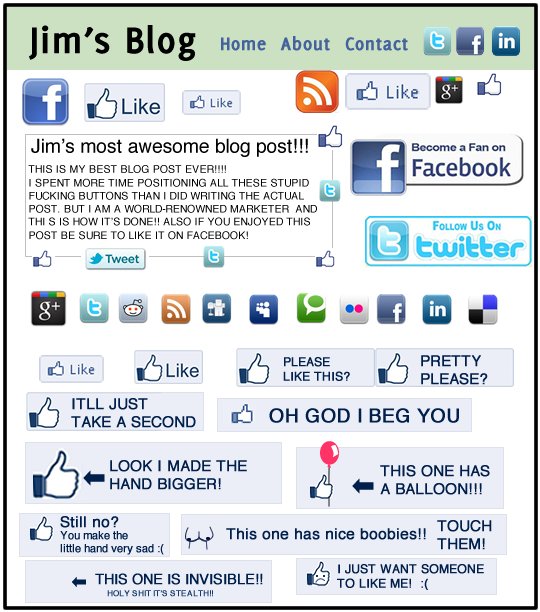Charles Stross on the very disturbing implications of Facebook and other social media tools:
There is an app, currently on the Apple app store as a free download, called Girls Around Me.
A couple of days ago, computer journalist John Brownlee wrote an essay about it explaining why he found it disturbing. I’d like to propose that it is symptomatic of a really major side-effect of our forced acculturation into Facebook’s broken model of human social interaction — a broken model shared by all the most successful social networks, by design — and that it is going to get much worse, until it kills people. Quite possibly in very large numbers.
I wish this was an April Fool’s joke or a piece of dystopian near-future fiction. Unfortunately it isn’t.
[. . .]
What “Girls Around Me” does is simple: it looks up your GPS location, then queries Facebook and FourSquare for people matching a simple search criterion (are they female?) who have checked in (or been checked in by their friends) in your vicinity. It then makes it really easy to pull up their publicly visible information — stuff such as age, occupation, favourite sports, what school they attended, and so on. All the stuff Facebook encourages you to share.
You can probably see why John and his friends became increasingly uneasy about this app: it’s pitched as innocent, slightly hokey fun, but it stops being amusing the instant you imagine it in the hands of a stalker or serial rapist. Or even just an unscrupulous ass-hat in search of a one night stand who isn’t above researching his target’s taste in music and drinks without their knowledge.
Creepy and stalkerish, right? So where’s the dystopic vision? Right here:
It’s easy to imagine how we could make something worse than “Girls Around Me” — something much worse. Facebook encourages us to disclose a wide range of information about ourselves, including our religion and a photograph. Religion is obvious: “Yids Among Us” would obviously be one of the go-to tools of choice for Neo-Nazis. As for skin colour, ethnicity identification from face images is out there already. Want to go queer bashing? There’s an algorithm out there for guessing sexual orientation based on the network graph of the target’s facebook friends. It’s probably possible to apply this sort of data mining exercise to determine whether a woman has had an abortion or is pro-choice.
In the worst case, it’s possible to envisage geolocation and data aggregation apps being designed to facilitate the identification and elimination of some ethnic or class enemy, not only by making it easy for users to track them down, but by making it easy for users to identify each other and form ad-hoc lynch mobs. (Hence my reference to the Rwandan Genocide earlier. Think it couldn’t happen? Look at Iran and imagine an app written for the Basij to make it easy to identify dissidents and form ad-hoc goon squads to proactively hunt them down. Or any other organization in the post-networked world that has a social role corresponding to the Red Guards.)
But as I said earlier, the app is not the problem. The problem is the deployment by profit-oriented corporations of behavioural psychology techniques to induce people to over-share information which can then be aggregated and disclosed to third parties for targeted marketing purposes.
Update, 2 April: The app has been pulled from the App Store after Foursquare revoked the developer’s API access, but the underlying problem is still there.




